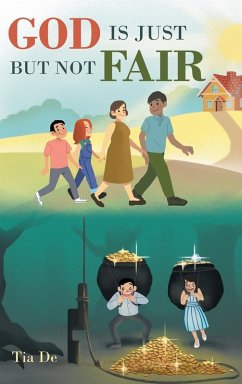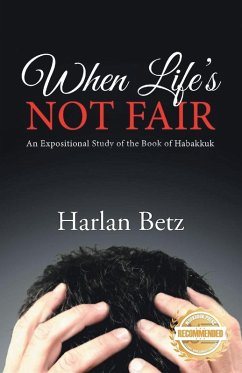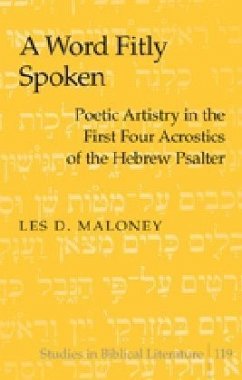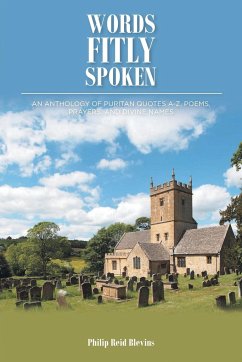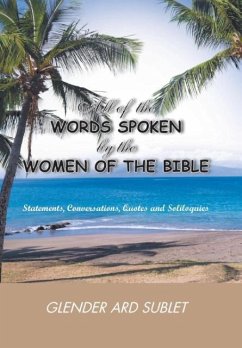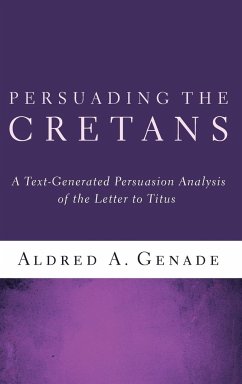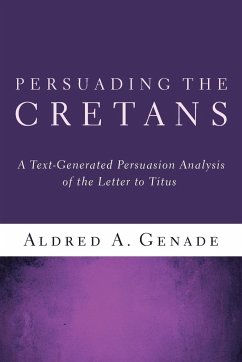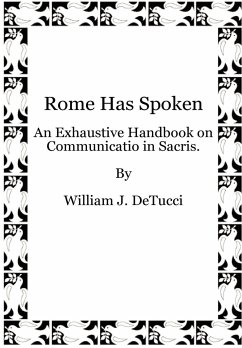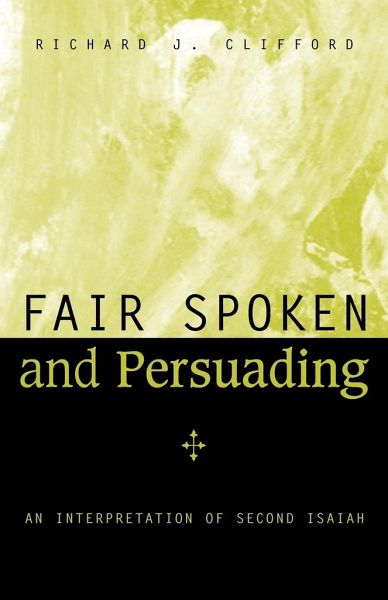
FAIR SPOKEN AND PERSUADING
Versandkostenfrei!
Versandfertig in 1-2 Wochen
18,99 €
inkl. MwSt.

PAYBACK Punkte
9 °P sammeln!
Within the last two hundred years, critical scholarship has come to recognize that Chapters 40-55 of the Book of Isaiah are the work, not of the eighth century Isaiah of Jerusalem, but of an anonymous sixth century disciple standing in the Isaiah tradition. This "Second Isaiah" spoke to a community who had once lived in Judah and Jerusalem, but now, a half century later, were settled in Babylon. Critical scholarship ?discovered? Second Isaiah through its scientific methods. The successive fads and fashions of that scholarship -- source criticism, then form criticism -- have onesidedly determin...
Within the last two hundred years, critical scholarship has come to recognize that Chapters 40-55 of the Book of Isaiah are the work, not of the eighth century Isaiah of Jerusalem, but of an anonymous sixth century disciple standing in the Isaiah tradition. This "Second Isaiah" spoke to a community who had once lived in Judah and Jerusalem, but now, a half century later, were settled in Babylon. Critical scholarship ?discovered? Second Isaiah through its scientific methods. The successive fads and fashions of that scholarship -- source criticism, then form criticism -- have onesidedly determined interpretation. Fair Spoken and Persuading criticizes previous approaches that took the book to be a series of fragments, outbursts of a great lyrical poet. It argues instead that Isaiah 40-55 is a collection of substantial speeches that reinterpret national traditions to answer a sixth century question: how could the exiles be Israel outside of the sacred land? The prophet's answer: by making a fresh Exodus and Conquest. The Judahites would become Israel through their brave and trustful journeying to Zion (Second Isaiah's name for Jerusalem). Second Isaiah is therefore not just a poet but an orator. His program of action -- one becomes Israel through action -- is still relevant today for both Jews and Christians who seek authenticity through their actions. Richard J. Clifford is Professor of Old Testament at Weston Jesuit School of Theology, where he also previously served as the school's Dean. He holds degrees from Boston College, Weston College, and Harvard University.



